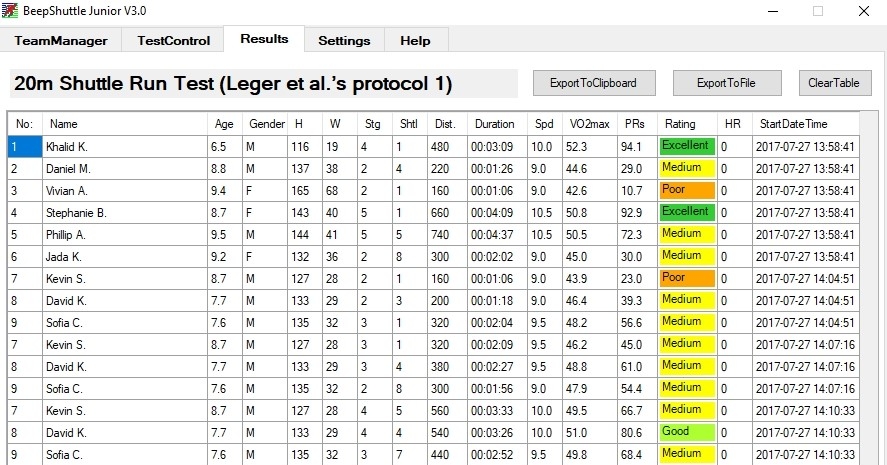

If you need a particular role, then you complete the test at a higher level.

In level three, it’s 6.1 seconds per shuttle, 5.8 seconds per shuttle in tier 4, 5.5 seconds for level 5, and you need to meet the 3 minutes 45 seconds running pass mark. The exam is typically not difficult, but you may want to brush up on these basic skills before test day. The Police Officer Selection Test (POST) is much like many other civil service exams in that it is a test of basic skills, not necessarily specific law enforcement knowledge. 5.4 is the minimum standard required and Police Officers will be expected to pass this test on an annual basis. This gives opportunity to understand the bleep system as well as warming you up. The bleep test is used also by physical training instructors to assess fitness as it is deemed to be most likely the most effective cardio workout for fat loss. Level 5.4 (the required pass mark) involves 3 minutes and 40 seconds of running. The table below lists the number of seconds you are given per shuttle to reach the other side of the 15 meter track between levels 1 and 5. “If I told you to run as fast as you can and you have to get to a marker in a set amount of time, that’s more stressful than knowing you have to beat a beep,” Little says. WHY IS IT SO CHALLENGING? It’s not really mental, but rather all physiological. It is recommended that a period of at least six weeks is advisable between each re-take to allow officers time to train to achieve the 5:4 standard. What happens if you fail the bleep test police?īut, if you fail the fitness test three times, you may be subject to Unsatisfactory Performance Procedures (UPP). Interval training simulates what your body will go through in the bleep test. Interval training (warm up 5 mins, 30 secs hard sprint + 30 secs walking x 10, cool down).Steady running (warm up 5 mins, followed by 15-20 mins of running at a steady pace, then a cool down).On paper, the "measurement" shows the 16.2 as the "measured as tougher" player, where in reality, I'd want the 13.8 playing for my life if I had to pick, 5 times out of 5. (Hey - I'm not encouraging this, but it happens!.
#Beep test good score full#
The 13.8, on the other hand, 'gutsed out' the last two point-levels and goes off in the corner to throw up a stomach full of lactate. But let's say the 16.2 finished there because that was impressive enough, they knew 12 would keep them in the squad, etc etc - and they really probably had a few more shuttles in them. On measurement, one would be tempted to say the 16 is tougher. Two players record a 13.8 and a 16.2 respectively, both very very good measures. It really is a good measure of VO2MAX for running, and toughness can only change someone a few "points of levels" here or there, it really is that absolute a measure. Say - 30 or 40 mins 3 or 4 times a week - and you'll notice progressive improvements on the beep test, and also in your fitness - you'd probably notice these improvements overall in your game & life too, increasing aerobic fitness is usually a good thing!Ĭlick to expand.I've used it with large teams too, and yes, it works for large groups well.īeing picky, I'd say it allows one to observe the toughness of an athelete, but not measure. Going running, or walking & running until you can run for the whole time - if you find it difficult to run for extended periods, is the best way to improve. The main way to improve: improve your aerobic capacity. Don't wave the arms wildy or anything like that, and only run and touch the line / over the line with your extended foot, don't jog around a little half-circle or anything at each end. Certainly walking until you need to run is good advice. I've tested many many people using it, and the main advice I would give them is to minimise energy expenditure.

Well, it's not the sort of thing that technique matters a whole heap on. It is a running-based measure of aerobic fitness, and is seen as pretty reliable and consistent measure (much, much moreso than NRTP levels ).Īs for the OP's questions about strategies. Click to expand.Nope, it is indeed the beep test (or, more correctly, as another poster pointed out, it's the multi-stage fitness test).


 0 kommentar(er)
0 kommentar(er)
